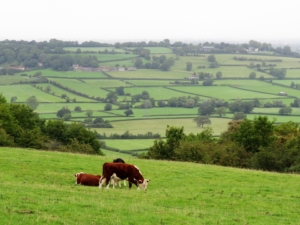Farm crime victimisation reporting
Any notion that crime is an urban phenomenon and that beyond the city-scape lies a crime-free rural idyll can be dismissed once and for all. Equipment, livestock and anything else of value on farms continue to be magnets for opportunistic and organised criminals alike.
Farms are  vulnerable to theft because of unique socio-demographic factors such as:
vulnerable to theft because of unique socio-demographic factors such as:
- Remoteness and distance between farms
- Access to the property
- Improved transport infrastructure
- Changing / unstable populations
- Relaxed attitudes to security
- Perpetrators are becoming more organised
- Has a crime been committed/evidence
And there are a number of quite specific rural issues
- A ‘she’ll be right’ rural mentality
- Irregular livestock counts
- Tractors which are keyed alike
Keys left in ignitions of unlocked vehicles and machines - Sheds/out-buildings left unlocked
- Machinery left near roadsides out of sight of house
- Informal “vigilantism”
- Non-reporting – the ‘dark figure of crime’
Non-reporting
Let’s consider the last one: non-reporting of farm crime is a significant issue because it affects resourcing decisions and police practice. If the reality of farm crime is not known, then appropriate attention cannot be paid at either local or state-wide levels. It also means that the weight of the law won’t be applied to those who engage in criminality – after all, investigations can only occur after reports are made.
Reasons offered for not reporting farm crime are many and varied, and can be divided into three key, broad categories of reasons: institutional; evidence and community.
 Institutional:
Institutional:
- belief that police not able to do anything
- perception that police do not have agricultural knowledge
- worry that police won’t take it seriously
- hassles of the legal process
Evidence:
- feeling that the crime not serious enough to report
- unable to prove ownership of stolen property
- not sure a crime has occurred
- no evidence
- too much time had passed
Community:
- offender was known / living in a small community
- fear of revenge
- farmer solved themselves
- did not want the media to get hold of the story
This is an international problem: in Victoria, Australia, the United Kingdom and elsewhere.


